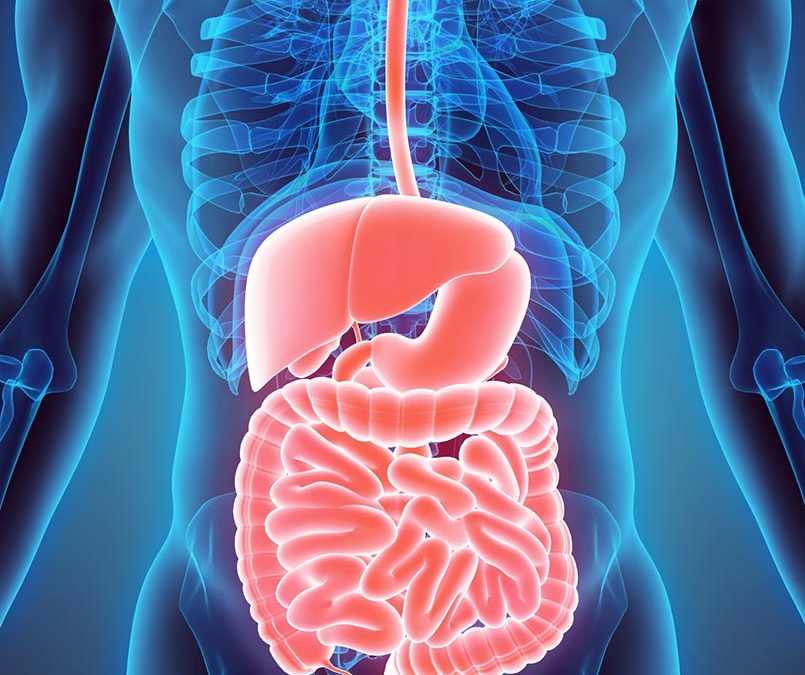Gastrointestinal Health: The Best Practices for Good Digestion
When it comes to gastrointestinal health, there are several things you should know. Here are our best practices for good digestion.
Did you know that over 20 million people suffer from digestive troubles every year, in Canada alone?
Managing your gastrointestinal health can prove challenging in today’s world. Triggers that affect digestion are found in everything from the food we eat to life’s daily stressors.
What should we do to maintain good gastrointestinal health?
Read on to find out!
Eat Whole Foods
Our modern way of life has changed our relationship with food and our diets, and is the source of many health issues affecting the population. Many of the foods we regularly eat are stuffed full of refined sugars and food additives that have been linked to digestive disorders.
When you consume foods that are high in food additives such as glucose or trans-fats, you put yourself at risk of developing gut-inflammation, colitis, and other painful digestive issues. Instead, opt for a whole foods diet that eliminates processed and refined foods and replaces them with foods as close to their natural state as possible.
Pro-Tip: Start Small
You don’t have to change all at once, that can often add unnecessary stress and pressure on yourself. Instead, make small changes that are easy to follow-through.
Here are some easy swaps to help you get started:
- Fresh berries and oats instead of toaster pastries
- Baked sweet potato instead of sweet potato fries or chips
- Fruit smoothies instead of milkshakes or slushies
- Skinless chicken breast pieces instead of chicken nuggets
These are just a few simple swaps to help you get started on your whole foods journey. Making the change to a healthier diet is the first step to improving your gut health.
Increase Daily Fiber
A diet rich in fiber is essential for digestive health.
Fiber is the fuel that your colon uses to keep its cells healthy, and keep your digestive tract flowing.
When you consume soluble fiber, it absorbs water and helps to add bulk to your stool. Insoluble fiber helps to clear out your digestive tract by keeping everything moving. It’s recommended that women get at least 25 grams, and men get at least 38 grams, of fiber per day.
What foods are high in fiber?
High Fiber Foods:
- Pears
- Avocados
- Lentils
- Oats
- Almonds
- Chia seeds
These are just a few delicious fiber-rich foods to add to your daily diet. High fiber diets have been shown to reduce the chances of digestive illnesses such as diverticulitis and ulcers.
Manage Stress
Stress can cause issues for your digestive health.
Stress has been directly linked to gastrointestinal health problems. During periods of stress, your blood flow and energy are needed in other areas of your body, leaving the digestive tract under stress.
Managing stress is vital to a healthy digestive system. Meditation and yoga are good exercises for managing anxiety and stress.
Talking to a healthcare professional about managing your stress is always a good idea. Finding ways to get your stress under control will not only help your mental health, but it will improve your gastrointestinal health as well.
Stay Hydrated
Being dehydrated can lead to painful constipation.
It’s recommended that you drink between 1.5 to 2 liters of water every day. That being said, if you live in an area that’s excessively hot, or if you work out regularly, you may need to consume more water than average to avoid dehydration. Like most things, just listen to your body.
You don’t have to limit yourself to just water though! Herbal teas and seltzer waters are yummy alternatives to plain water, and they still aid in hydration.
Just be sure to keep your caffeinated beverages to a minimum.
Exercise
Regular exercise helps your body’s digestion.
Physical activity after eating can help you digest 30% faster.
In addition to aiding in digestion, working out regularly may also help reduce symptoms of inflammatory bowel disease and constipation.
It doesn’t have to be super intense, either. Try taking a short walk after each meal, to get started.
Cut the Bad Habits
Certain bad habits are linked to digestive health issues.
These habits include, but aren’t limited to, smoking, excessive drinking, and late-night eating.
Smoking has been linked to stomach ulcers and doubles your chances of getting acid reflux. Studies have shown that quitting smoking can help reverse these problems.
Late-night eating can also cause indigestion and heartburn. After eating, your body needs time to properly digest foods. Laying down directly after eating is not conducive to healthy digestion, so try to avoid eating for at least 3 hours before bedtime.
Excessive drinking has been linked to gastrointestinal bleeding and other digestive issues, especially in men.
Eat Slowly
Digestion starts with your first bite.
As you chew, your teeth break down the food so the digestive enzymes in your system can finish breaking the food down more easily. The more you chew your food, the easier it is for your body to break it down once in your stomach.
Eating too quickly and not chewing properly can lead to malabsorption. Thoroughly chewing produces saliva, which aids in the digestive process by helping your stomach break down the food.
Managing Your Gastrointestinal Health
Management of your gastrointestinal health management is in your hands!
Adding these practices to your daily routine will help you get back on track with a healthy digestive system. Maintaining a healthy gut is essential for your whole body, so it’s not something to take lightly. Fortunately, improving and managing your symptoms is possible with the right guidance, and consistency.
If you’d like to connect with us to learn more about maintaining a healthy lifestyle, our doctors are available at your fingertips!





